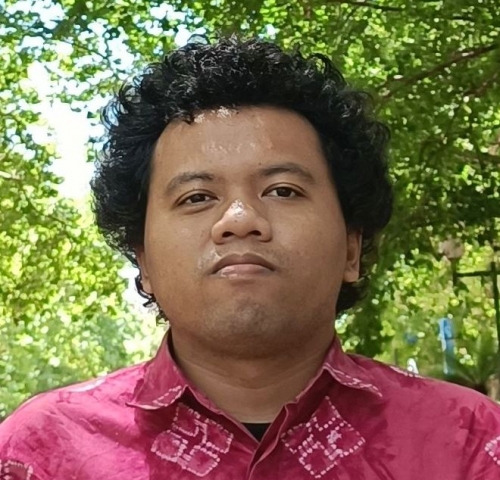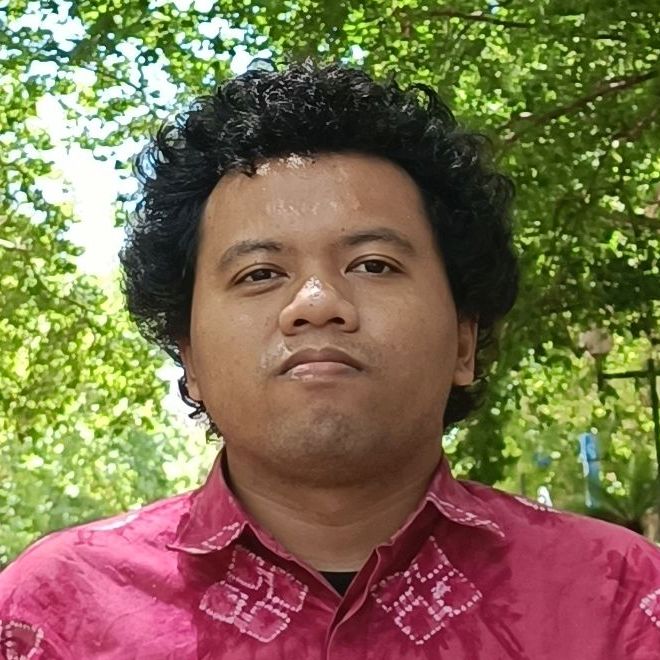
Muhammad Afifurrahman
University of New South Wales
Muhammad Afifurrahman is currently a first-year PhD student at Department of Pure Mathematics, University of New South Wales. Before starting his current degree, he completed his bachelor and master degree in mathematics in Institut Teknologi Bandung, Indonesia. When pandemic struck, he ended up exploring more mathematical subjects, especially the ones that are not normally taught in his university, from his home in Indonesia. These experiences shaped him as an aspiring mathematician. He is interested on discrete mathematics in general, especially in the subfields of number theory, finite fields, and combinatorics.
Can you give me a quick rundown about the type of mathematics you are studying and its potential impacts for the broader community?
In general, I am interested in discrete mathematics; the mathematics of objects that you can count as usual, to speak roughly. My main topic for PhD is number theory, which might be summarized as studies integers and their relations. Even though the studied objects are quite simple, we sometimes have to employ heavy machineries from other mathematics fields in order to get insight of their behaviours. This field is also the key in the field of modern cryptography and coding theory, whose importance cannot be understated in this technological world.
How did you get into mathematics? Was there someone or something that inspired you into this field?
To be fair, I have been exposed to competitive mathematics since I was in primary school. I chose mathematics major during my bachelor since I believe this is one of the most flexible degrees. In that time, since I was participating in competitive mathematics again, I needed to study many mathematical subjects’ way before they would be taught officially. It was in those times that I realised I enjoy discovering new mathematical things, and being a mathematician is an interesting work. On the other hand, I am also lucky that I surround myself with equally enthusiastic friends and colleagues (in mathematics) during my time, especially during the pandemic. These two are the important factors on why I am here today.
You received a Travel Grant to attend AMSI Summer School 2023. How important was this in terms of your ability to attend, fully participate in the program and meet others studying in similar fields?
I am grateful for being able to attend this school in-person. During pandemic, I have attended some other mathematical summer programs; however, they all were held online. By being able to participate in-person, I get to experience directly how mathematics are done in Australia, and I can see the spirits of the mathematicians here who are eager to share their knowledge to aspiring young students. Thus, I am thankful for the grant.
What was the most valuable part of the program for you?
The course contents, especially in the one I took (geometric group theory), were surprisingly extensive. The instructors are also helpful and give many enlightening comments that accompany the lectures. I also want to give a special mention to the tutorials, which are a nice way to explore other related topics while also discussing mathematics with peers.
In the long-term, what do you think are the benefits of having attended Summer School?
To put it simply, new friends, new insights, new knowledge. Since my field uses a lot of machineries from other mathematical fields, I would not be surprised if a related topic suddenly appears again during my mathematical life.
Summer School included a special Careers Day program which aims to help give students an idea of the kinds of career paths available to maths graduates in industry and private sector research areas. Were you previously aware of the types of industry opportunities available to mathematical science graduates?
I have been aware that industry opportunities for mathematics graduate are quite big in Australia, especially compared to Indonesia, where I came from. Thus, I am quite excited to attend the given presentations, especially since I want to know more about the details. I would not rule out working in industry, even if I see myself as more of a future mathematician right now.
What advice would you give to someone who is considering applying for Summer School in 2024? Should they apply and why?
If time and chance permit, I would say any aspiring mathematics (and related fields) students in Australia would benefit attending this summer school, especially in-person. Do not be intimidated by the subject materials; as long as one is interested and understands the prerequisites and introductions, everything will be fine. The lectures and instructors are top-notch, especially if one is interested in getting into mathematical research. A bonus point in this school is plenty of time and opportunities to make new acquaintances and friend.
Where do you want the mathematical sciences to take you? Where do you see yourself in five, ten years time?
Of course, I want mathematical sciences to take me further than where I am right now. Right now, I mostly see myself in the future collaborating with more mathematicians, and maybe discovering more surprising mathematical results with more mathematical tools.

